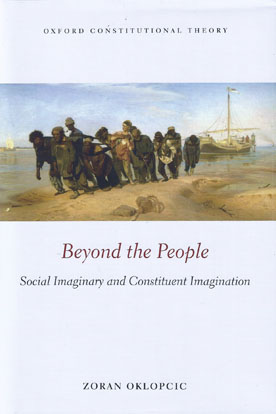
Beyond the People develops a provocative, interdisciplinary, and meta-theoretical critique of the idea of popular sovereignty. It asks simple but far-reaching questions: Can 'imagined' communities, or 'invented' peoples, ever be theorized without, at the same time, being re-imagined and re-invented anew? Can polemical concepts, such as popular sovereignty or constituent power, be theorized objectively?
If, as this book argues, the answer to these questions is no, theorists who approach the figure of a sovereign people must acknowledge that their activity is inseparable from the practice of constituent imagination.
Though widely accepted as important, even vital, for the development of political concepts, the social practice of imagination is almost always presumed to operate either historically or impersonally, but seldom individually. Those who theorize the figures of popular sovereignty do not see that they are, in effect, 'conjurers' of peoplehood.
This book invites constitutional, international, normative, and other political and legal theorists of sovereign peoplehood to embrace the conjuring-side of their professional identities, as a way of exploring the possibility of moving beyond eternally recurring, insolvable, and increasingly irrelevant questions.
Instead of asking: Who is the people? What is the function of constituent power? Where may the people exercise its right to self-determination? Beyond the People asks the reader to consider the prospect of a riskier and more adventurous theoretical road, that opens with the question: What do I as a 'theorist-imaginer', or 'conjurer of peoplehood', assume, anticipate, and aspire to as I theorize the vehicles that mediate the assumptions, anticipations, and aspirations of others?
This question is examined throughout the book as it interrogates the idea of peoplehood beyond disciplinary boundaries, showing how polemical, visual, affective, conceptual, and allegorical language critically shapes our idea of peoplehood. It offers a nuanced account of the contested relationship between the social imaginary of peoplehood on the ground, and the imaginative practices of the professional 'conjurers' of peoplehood in the academy.